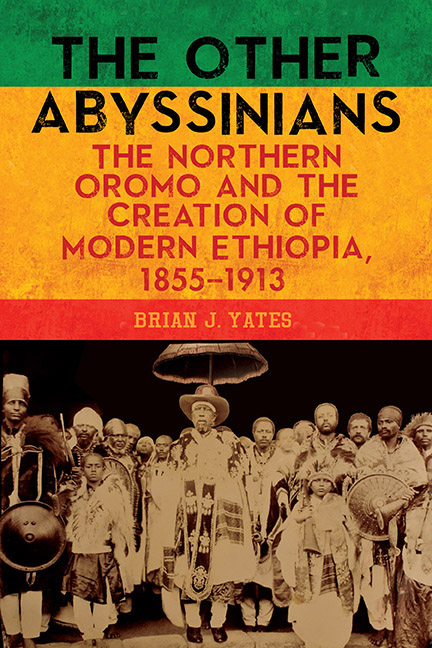Book contents
- Frontmatter
- Contents
- Preface
- Introduction: What about the Oromo Habäsha? Liberating Northern Oromo Experience from Competing Nationalisms
- 1 Cultural Backgrounds and the Habäsha State
- 2 In but not of: The (Re)Integration of the Wällo Oromo into the Habäsha Community
- 3 Menilek, Gobäna, and the Creation of Habäsha Shäwa, 1855–88
- 4 Recreating the Autonomy of Wällo: The Unions of Mikaél and Menilek
- 5 From Personal Relationships to a Centralizing State: Shäwan Ethiopia (1889–1913)
- Conclusion: The Oromo Habäsha in Modern Ethiopia
- Appendix A Guide to the Transliteration of the Ethiopic Script to the Latin Script
- Appendix B Glossary of Ethiopian Terms
- Appendix C Sample Interview Questions for Shäwa and Wällo
- Notes
- Bibliography
- Index
Appendix C - Sample Interview Questions for Shäwa and Wällo
Published online by Cambridge University Press: 21 March 2020
- Frontmatter
- Contents
- Preface
- Introduction: What about the Oromo Habäsha? Liberating Northern Oromo Experience from Competing Nationalisms
- 1 Cultural Backgrounds and the Habäsha State
- 2 In but not of: The (Re)Integration of the Wällo Oromo into the Habäsha Community
- 3 Menilek, Gobäna, and the Creation of Habäsha Shäwa, 1855–88
- 4 Recreating the Autonomy of Wällo: The Unions of Mikaél and Menilek
- 5 From Personal Relationships to a Centralizing State: Shäwan Ethiopia (1889–1913)
- Conclusion: The Oromo Habäsha in Modern Ethiopia
- Appendix A Guide to the Transliteration of the Ethiopic Script to the Latin Script
- Appendix B Glossary of Ethiopian Terms
- Appendix C Sample Interview Questions for Shäwa and Wällo
- Notes
- Bibliography
- Index
Summary
Wälloye Informant Interview Questions
Identity Questions
1. How do you identify yourself? Why?
2. What does this identity (religious, ethnic, national) mean to you?
3. How did your parents/grandparents identify themselves, what does this identity mean to you?
4. What do you know about the history of Wällo?
5. What do you know about the history of [the answer to question number 3] in Ethiopia?
6. What things (cultural, spiritual, political) link the people of Wällo?
7. What things (cultural, spiritual, political) link the people of Ethiopia?
8. How do you think the people of Wällo differ from the people of Shäwa, Bägémder, and Gojjam?
9. How do you think the people of Wällo differ from the people of the southern areas of Ethiopia?
10. How do the Amhara of Wällo differ from the Amhara of other areas in Ethiopia?
11. How do the Oromo of Wällo differ from the Oromo of other areas in Ethiopia?
12. Is there a difference between the Amhara and the Oromo of Wällo?
13. Within Wällo are their significant differences between the sub-districts?
14. What does being an Ethiopian mean to you? Parents? Grandparents?
15. What does being a Wälloye mean to you? Parents? Grandparents?
Historical Questions
1. What do you know about Ras Nägus Mikaél?
2. How was he seen by the people of Wällo?
3. How was he seen by the people of Ethiopia?
4. What important events occurred during his time?
5. How is his rule remembered by the people of Wällo?
6. What do you know about As’é Menelik?
7. How was he seen by the people of Wällo?
8. How was he seen by the people of Ethiopia?
9. What important events occurred during his time?
10. How is his rule remembered by the people of Wällo?
11. What do you know about Lej Iyasu?
12. How was he seen by the people of Wällo?
13. How was he seen by the people of Ethiopia?
14. What important events occurred during his time?
15. How is his rule remembered by the people of Wällo?
16. Describe some memorable events that happened in the past in Wällo.
- Type
- Chapter
- Information
- The Other AbyssiniansThe Northern Oromo and the Creation of Modern Ethiopia, 1855-1913, pp. 146 - 148Publisher: Boydell & BrewerPrint publication year: 2020



